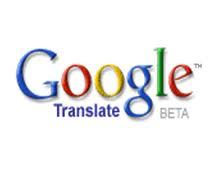In Your Face: Translation and Social Media
Medical Pharmaceutical Translations • Dec 3, 2012 12:00:00 AM

Happy Birthday In Arrears
Birthday wishes have made a big comeback with Facebook, since we get weekly reminders and don’t actually have to remember our friends’ special day any more. So that seemed like an easy place to start looking at translations. As the technology behind both translation features, Google and Bing, basically consists in stringing words together, drawing from their vast inventory of documents in the respective languages and looking for similar patterns, “Happy birthday” should be quite standard. But add just one word, and even the simplest expression starts falling apart as demonstrated by the sub-header above, taken from a (belated) Swedish well-wisher.
Going With the Crowd
Before turning to machine translation to translate user content, Facebook actually used crowdsourcing to translate the site itself into other languages. Twitter, an equally major player in the world of social media, employs this approach for its user content translations, although it began testing the Bing translator as well, as reported in February 2012. Crowdsourcing, of course, has the big advantage of being performed by actual human beings capable of grasping the meaning of what is said (a feat yet unattained by even the most sophisticated computer program). Like machine translation, it comes in handy in situations where you would not hire a professional translator, i.e. mainly in a personal rather than a professional context. Quality problems, however, remain. Companies that want to benefit from the no-cost factor of crowd-sourced translations still hire legions of professional translators for proofing and editing to ensure accuracy—including Facebook, by the way. Yours truly was among the translators contacted by Facebook back in 2008 to provide quality control for the German and French versions of the site.
Our Global Village
One of the thriving ideas behind all social media is the facilitation of communication among people around the world. And we have become used to—some may say dependent on—receiving constant news feeds from friends, relatives, celebrities, and media outlets of our choice. To have access not only to content of any kind in your native language but to content originally conceived in any other language is a thrilling thought. After all, sharing in the interests and opinions of others, no matter where they are, should broaden our horizon and bring us closer together. But how much do we really get out of a comment like this: “I find the image that a studio will ultimately is a great tool; I have so far not so considered, it hits it but for me exactly”? Even if you knew that this was a response to an article about recording music, the meaning would still elude you. Unfortunately, most translated status updates and comments on Facebook read like this kind of mumbo-jumbo (there is, of course, a certain fun factor here).
Chances are, garbled personal messages will remain mostly inconsequential, and if the translation feature encourages us to communicate with people in far-flung places, then there is definitely a benefit to the madness, and sometimes we might just get a glimpse of what someone actually meant. If we look at the bigger picture, we should take machine-translated content and even crowd-sourced translations with a grain of salt. While no Twitter mistranslation has made the news to date, Malaysia’s Defense Ministry blamed Google Translate for embarrassing mistranslations earlier this year. As our social media platforms become more and more a primary source of information, also with regard to world events, we might just want to remember the age-old adage of “Consider the source”, whether we read in translation or not.
Nanette Gobel, MA
#translations #crowdsourcing #humantranslation #googletranslate #machinetranslation #aiatranslations
